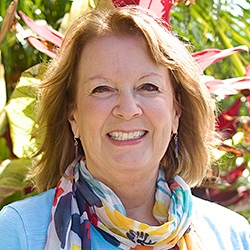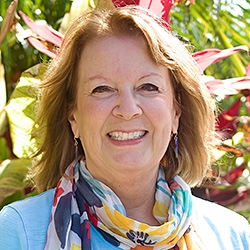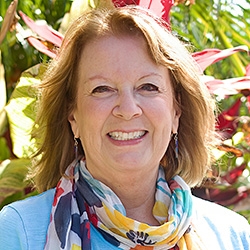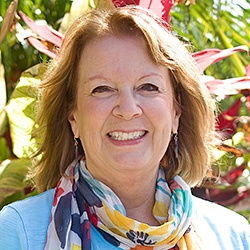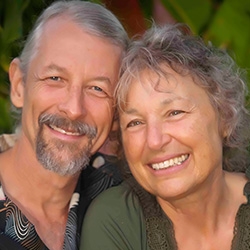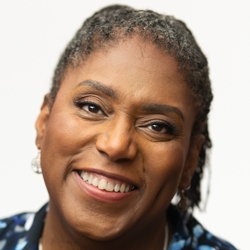
Search Results: facilitator
-
Listen to Mary tackle one of the greatest challenges of facilitating an NVC group: How do you deal with hecklers and people you don't like? Mary offers insightful tips and helpful guidance.
-
Ever wondered how to balance everyone’s needs when leading a NVC group? In the first part of the video, Mary shares tips how to balance the facilitator's, the individuals members' and the group's needs. In the second part, Mary talks about transparency as a facilitator - what does it mean, what does it look like and how to be transparent in a way that is supportive for the group.
-
Listen in as Mary deftly blows the role of facilitator wide open in this excerpt from her very popular 2021 course, Facilitate NVC Groups with Joy and Confidence. She also covers a variety of useful tips such as what to do if you feel lost or confused, how to trust your gut, and ideas around utilizing empathy for yourself!
-
Listen to Mary Mackenzie as she focuses on her opening premise for group participation, which lays the foundation for developing vibrant groups and then defines the facilitator’s role, which is often not known or incorrectly defined.
-
- Share NVC in a way that keeps your group engaged
- Walk away with practical facilitation tips and 5 session outlines
- Know how to respond to nay-sayers
- Learn how to promote your work
-
Duke Duchscherer shares what the role of the facilitator is in a restorative circle.
-
Roxy Manning shares that facilitating equitable group dynamics involves tracking attention, needs, purpose alignment, resources, and impact. Identifying patterns in attention distribution, centered needs, and maintaining alignment with the purpose enhances inclusivity. Tracking internal and external resources, especially considering identity-related differences, prevents disparities. Recognizing who bears the impact, providing support, and addressing impactful issues contribute to fostering an equitable facilitation environment.
-
What does nonviolence have to do with group facilitation?
Miki Kashtan believes that nonviolence is a way of being and living that orients us in all our thoughts, words and deeds toward the integration of truth, love and courage. All nonviolent individual and collective actions are aimed at preserving what serves life and challenging what does not. Facilitation is one clear path for bringing nonviolence to the world!
How can we act now, as facilitators, as if the world of our dreams, the Beloved Community, is already in place?
-
Join CNVC Certified Trainer Jerry Koch-Gonzalez, Greg Rouillard and Certified Dynamic Governance (Sociocracy) Consultant John Buck for this six-session course recording to learn how to transform your method of meeting facilitation. Many NVC organizations have begun using sociocratic tools, including circle meetings and decision making by consent, with satisfying results.
-
If you’ve ever dreaded attending a meeting – or watched in dismay as your group collapses into conflict – know that a methodology known as Convergent Facilitation offers you possible solutions. It’s based on one simple experience: that people come together at the level of their underlying principles, needs, aspirations, and dreams, not at the level of their surface positions.
Convergent Facilitation is a highly efficient decision-making process developed by Miki Kashtan from the principles of Nonviolent Communication. It enables you to look beneath the surface and find the essence of what’s important to different stakeholders, and bring it together into one set of principles that lead to proposals and ultimately decisions. As a result, it readily produces solutions and decisions that everyone can embrace.
-
Listen in as Mary deftly blows the role of facilitator wide open in this excerpt from her very popular 2021 course, Facilitate NVC Groups with Joy and Confidence. She also covers a variety of useful tips such as what to do if you feel lost or confused, how to trust your gut, and ideas around utilizing empathy for yourself!
-
- Access, follow and train your intuition: how to know without knowing;
- Navigate difficult situations with care for all through an active awareness of your own power, as well as other sources of power in the room;
- Remain aware of who speaks and who doesn’t, of those whose pain is invisible – and what you can do about it;
- Walk towards someone presenting a challenge to a group you are facilitating, while continuing to hold care for the entire group, and more.
-
Expressing ourselves honestly is sometimes scary because we can't predict where the conversation will go after we've made ourselves vulnerable. This recording will demonstrate how the power of our honesty is enhanced by ending on a clear and present request.
-
- Learn tips and strategies to ensure ALL voices are heard
- Grow your capacity to name and address power dynamics
- See how prior assumptions and perspectives impact how groups work together
- Explore facilitation components using a caring for all, power-with lens
-
-
-
-
-
- Learn tips and strategies to ensure ALL voices are heard
- Grow your capacity to name and address power dynamics
- See how prior assumptions and perspectives impact how groups work together
- Explore facilitation components using a caring for all, power-with lens
-
Leading an Nonviolent Communication workshop is a good way to learn and practice NVC skills. Here are Shantigrabha and Gesine's seven top tips for facilitators.

